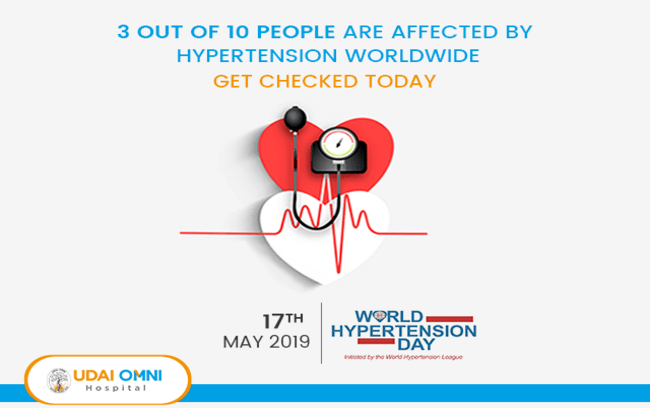3 out of 10 People are Affected by Hypertension
What is blood pressure?
Blood pressure is simply the physical pressure of blood in the blood vessels. It is similar to the concept of air pressure in a car tyre.
What do the numbers mean?
A common blood pressure might be 120/80 (said as ‘120 over 80’). These values are quoted in units known as millimetres of mercury (mmHg). There are 2 numbers because the blood pressure varies with the heartbeat. The higher pressure (120) represents the pressure in the arteries when the heart beats, pumping blood into the arteries. This pressure is called systolic pressure. The lower pressure (80) represents the pressure in the arteries when the heart is relaxed between beats. This pressure is called diastolic pressure.
Does blood pressure change?
Blood pressure can be quite variable, even in the same person. Blood pressure goes up and down with different normal daily activities. For example, exercise, changes in posture and even talking changes blood pressure. Blood pressure tends to be higher during the day than at night and higher in the winter than in the summer. Blood pressure also rises when we grow older, particularly systolic blood pressure. Before adulthood, blood pressure rises in parallel with height. In adult years, weight and blood pressure are closely related. When weight goes up, blood pressure tends to go up and we can lower blood pressure by losing weight. Blood pressures differ between individuals. Some people have low, some average and some high blood pressure levels.
What is high blood pressure?
There are various definitions of high blood pressure, which is also known as hypertension, but most doctors consider blood pressures of 140/90 and greater to be high. The precise values that doctors might interpret as high blood pressure depend to an extent on individual circumstances. For example, in patients with diabetes, the definition of hypertension is considered by some to be pressures greater than 130/80. The definition of hypertension is used by doctors to help decide which patients would benefit from medical (lifestyle and drug) treatment to lower pressure. The definitions depend on the balance of risk of not lowering blood pressure (heart attack and stroke, etc) versus the risks of treatment (drug side effects, etc). This explains why hypertension is defined at lower blood pressure levels in diabetic subjects. For the same blood pressure, cardiovascular complications (that is damage to the heart, blood vessels and brain) are more likely in diabetics and blood pressure reduction offers benefit even when a diabetic’s blood pressure is not as high as regular definitions of hypertension.
How common is high blood pressure?
Approximately 4 in 10 adults over age 25 have hypertension and in many countries another 1 in 5 have prehypertension. An estimated 9/10 adults living to 80 years of age will develop hypertension. One half of blood pressure related disease occurs in people with higher levels of blood pressure even within the normal range.
Why is blood pressure important?
Blood pressure is important because it is the driving force for blood to travel around the body to deliver fresh blood with oxygen and nutrients to the organs of the body. However, high blood pressure is important because it leads to increased risk of serious cardiovascular disease, with complications such as heart attack, heart failure, stroke, kidney failure and blindness.
Who gets high blood pressure?
High blood pressure is more common is older age groups and in people with a family history of hypertension. It is also more frequent in those who are overweight. However, high blood pressure can affect young thin people with no family history, so no one should consider himself or herself immune from high blood pressure.
Does high blood pressure need to be treated?
It is the goal of good clinical practice to reduce high levels of pressure wherever possible in order to reduce the risk of complications such as heart attack and stroke. Changes to lifestyle such as weight loss, reduced salt intake, reduced alcohol consumption or exercise are often the first line of treatment. If these approaches don’t return blood pressure to acceptable levels then drug treatment is usually required.
How do I know if I have got high blood pressure?
The truth is you cannot know your blood pressure unless you have it measured and every adult should know his or her blood pressure. Although headaches and nose bleeds can be the result of very high blood pressure, there are many more innocent causes for these common ailments.
Can high blood pressure be cured?
Although not ‘cured’ as such, modern therapeutic approaches to blood pressure are very effective and generally very safe. However, if treatment is stopped the high blood pressure usually returns reasonably quickly.
Ref: International Society of Hypertension


